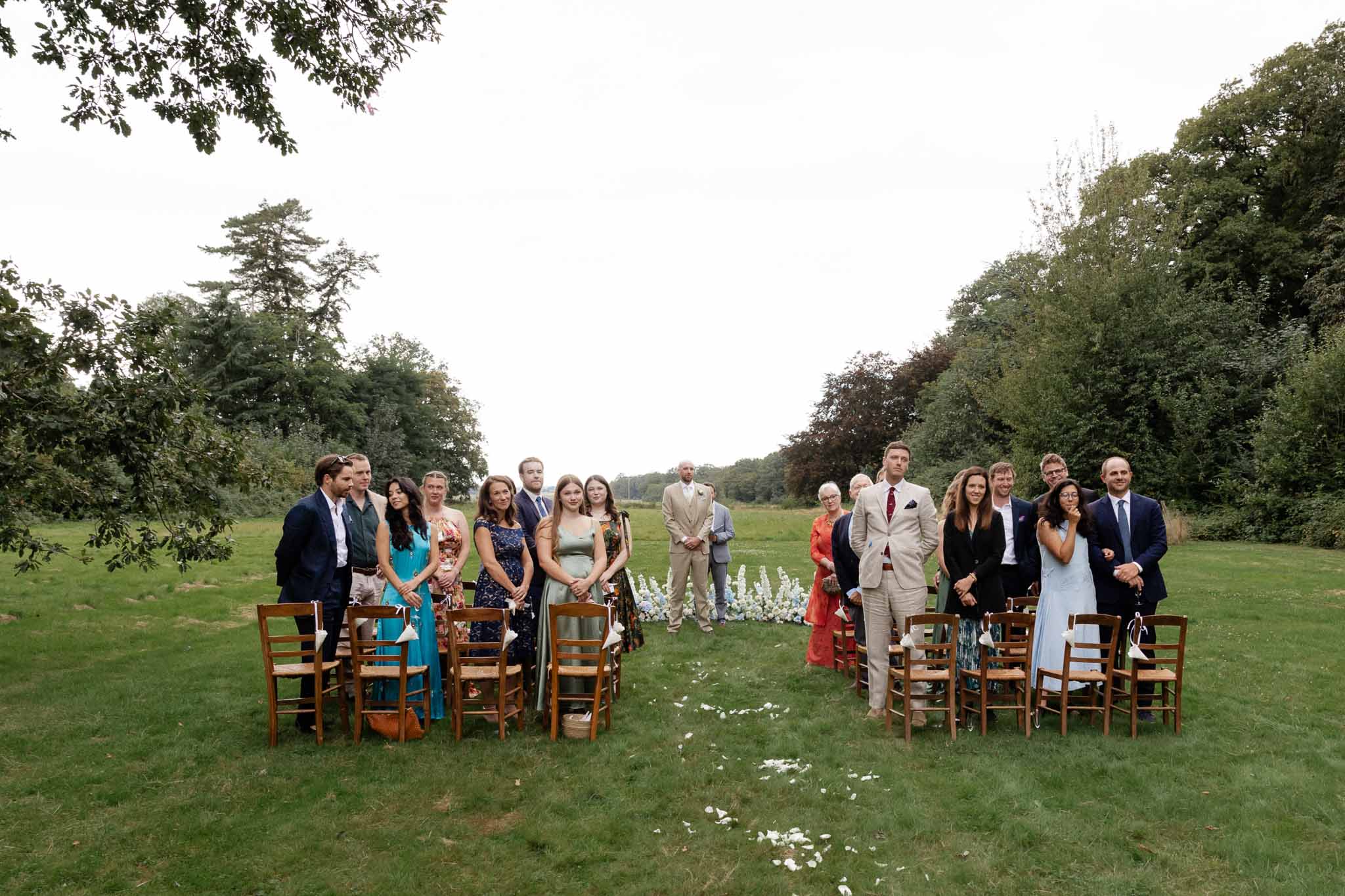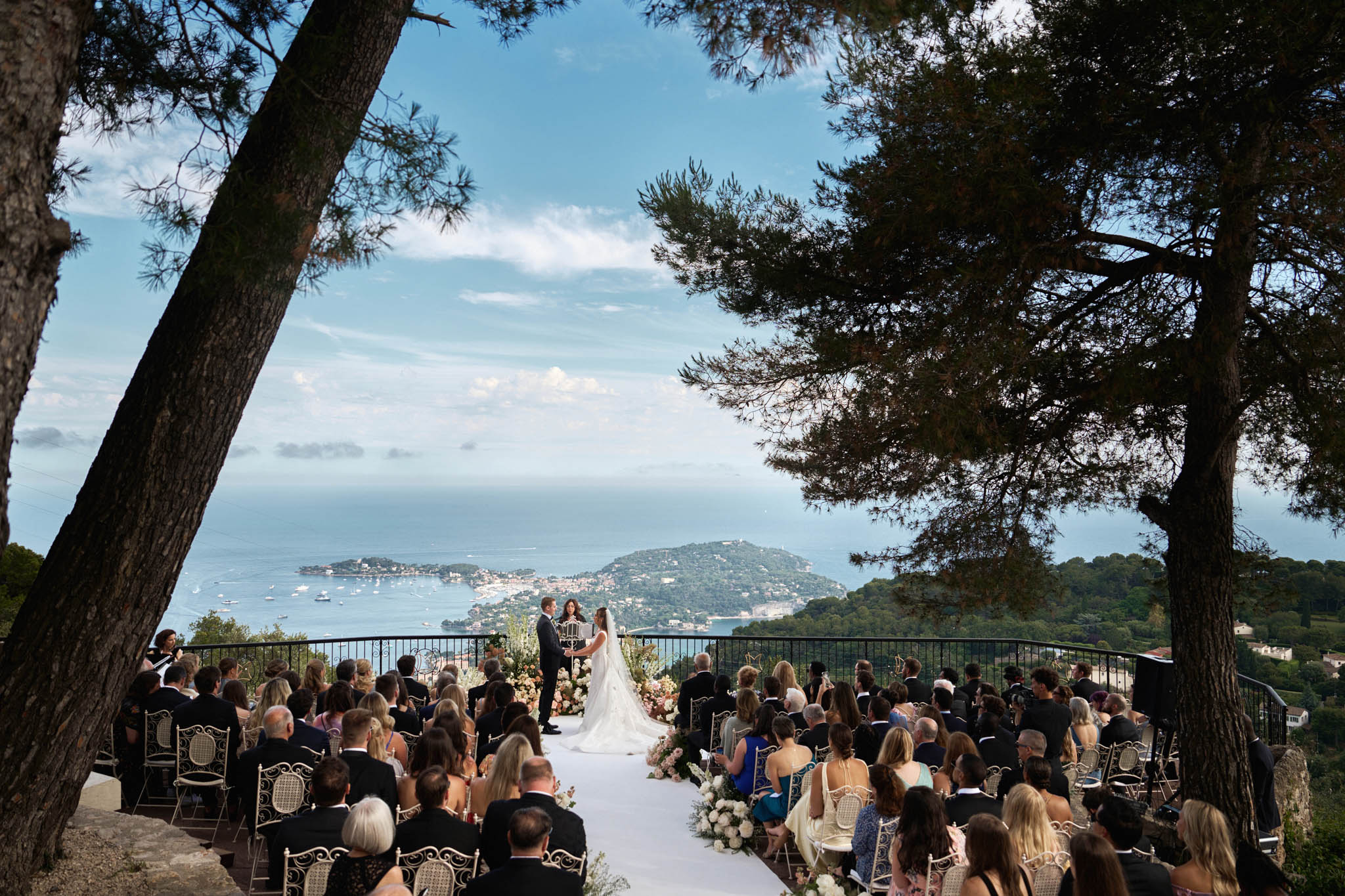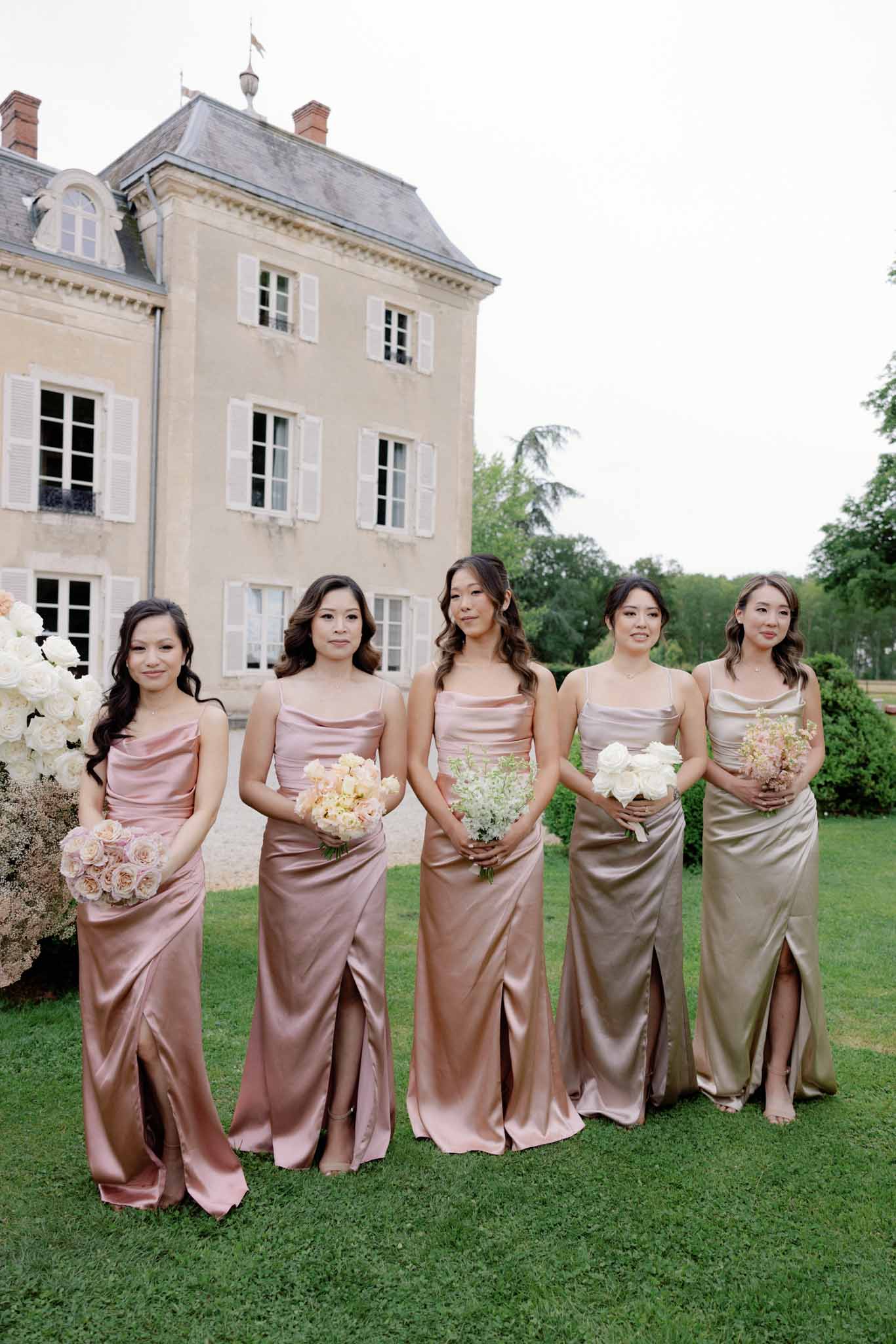Inviting guests to a wedding in France is exciting—but it also comes with tough decisions and one of the most common questions couples face is: Should we offer plus-ones? While it might seem like a small logistical detail, offering (or not offering) a guest the option to bring someone can shape everything from your budget and seating plan to the overall guest experience. This guide breaks down who should get a plus-one, when it’s okay to say no, and how to communicate your choices with grace—especially when planning a destination wedding abroad.
Key Insights
- A plus-one is an optional guest a wedding invitee can bring, usually indicated on the invitation as “and guest.”
- Deciding who gets a plus-one affects your budget, guest count, and seating plan, making it one of the most sensitive parts of planning.
- You should offer plus-ones to married, engaged, cohabitating, or long-distance guests to ensure they feel comfortable and included.
- It’s okay to withhold plus-ones from guests in casual relationships, coworkers, or those who will already know others attending.
- Communicate your plus-one policy clearly on your website or in your invitations to avoid confusion and manage expectations gently.
- For a destination wedding in France, be especially mindful of venue limits, travel logistics, and how you seat solo guests thoughtfully.
What Is a Plus-One and Why It Matters
When building your wedding guest list—especially for a destination wedding in France—few decisions spark more confusion (or questions) than whether to offer guests a plus-one. While it might seem like a small detail, plus-ones can significantly affect your budget, seating plan, and overall guest experience. Understanding what a plus-one truly means, and why it’s such a common point of etiquette, is key to making fair, thoughtful decisions.
What “plus-one” means
A plus-one refers to the option given to a wedding guest to bring an additional person of their choosing—often a romantic partner, friend, or companion—which is usually indicated on the invitation as “and guest.”
Why it’s a common question for couples
Couples often struggle with the plus-one question because it impacts guest count, budget, and venue capacity, and can raise issues of fairness and social dynamics—especially when deciding who qualifies for one and how to communicate that clearly.
Who Should Receive a Plus-One
When it comes to plus-ones, consistency is key. While you may not be able to offer one to every guest, certain individuals fall under the category of “should definitely” receive a plus-one. These are people whose relationships or circumstances typically warrant bringing a guest to ensure they feel included, comfortable, and respected on your big day.
Married, engaged, or cohabitating guests
Guests who are married, engaged, or living together should always receive a plus-one, even if you’ve never met their partner—wedding etiquette treats these relationships as a social unit and extending the invitation to both shows respect for their commitment.
Wedding party members
Everyone in the wedding party should be offered a plus-one as a gesture of appreciation for their time, effort, and expenses leading up to the big day—it helps avoid any sense of favoritism and ensures they can enjoy the celebration with someone close.
Guests in long-term relationships or traveling solo
Guests in serious relationships or those traveling alone—especially to a destination wedding—should ideally be given the option of bringing a plus-one so they feel more at ease and can share in the experience with someone they know well.
Who Doesn’t Need a Plus-One
While offering a plus-one is a kind gesture, it’s not a requirement for every guest. In fact, limiting plus-ones in certain cases can help you stay within your budget, manage your venue capacity, and preserve the intimate feel of your wedding. The key is applying your criteria fairly and communicating it with care.
Casual or new relationships
Guests who are casually dating or have only recently entered a relationship typically don’t need a plus-one—unless the couple is already serious or living together, it’s perfectly acceptable to invite the primary guest alone.
Guests who know others at the wedding
If a guest will be surrounded by family or friends they already know well, they likely don’t need a plus-one, as they’ll still feel included and connected during the celebration.
Coworkers
Unless you’re inviting a group of coworkers and offering all of them plus-ones, there’s no obligation to extend that option to a single work friend—offering plus-ones inconsistently in professional circles can create awkward dynamics.
Handling Plus-Ones with Grace and Etiquette
Navigating plus-one etiquette is one of the trickier aspects of wedding planning, but it doesn’t have to be uncomfortable. With a little forethought and clear communication, you can manage expectations kindly and avoid misunderstandings—while still honoring your budget and vision.
Is it rude not to invite plus-ones?
It’s not rude to limit plus-ones as long as your approach is thoughtful and consistent; most guests understand that weddings have space and budget limitations, especially for destination celebrations.
How to respond to plus-one requests politely
If a guest asks about bringing a plus-one, it’s perfectly acceptable to respond with something gentle like, “We’d love to include everyone, but due to space and budget we’re only able to invite those listed on the invitation”.
Clear invitation and website wording examples
Use your wedding website to clarify your policy with friendly language, such as: “Due to limited capacity, we’re only able to include guests named on the invitation. Thank you for understanding!” If plus-ones are allowed, note it clearly: “If your invitation says ‘and guest,’ we’re excited to welcome you both!”
When (and how) to make exceptions
If a guest’s relationship status changes or someone is traveling from far away and knows no one else, it’s okay to make an exception—just be discreet, avoid drawing attention to the change, and stay true to your overall plan.
Tips for Managing Plus-Ones at a French Destination Wedding
Hosting a wedding in France adds an extra layer of complexity when it comes to plus-ones—especially with travel logistics, guest comfort, and cultural expectations in play. These tips will help you maintain balance between generosity and practicality while ensuring every guest feels considered.
Seating solo guests thoughtfully
When guests attend without a plus-one, be intentional about their seating—place them with others they know or group them by shared interests and energy, so the table feels social and welcoming rather than isolating.
Communicating boundaries with kindness
Kindly and clearly explain your plus-one policy on your website or in conversations, focusing on your intention to create an intimate, meaningful celebration rather than emphasizing restrictions—phrases like “we wish we could invite everyone, but…” go a long way.
Navigating budget and venue limitations abroad
Destination venues often have strict capacity limits and higher per-head costs, so offering selective plus-ones is both normal and expected—prioritize those in serious relationships or traveling solo, and don’t feel guilty for making choices that support your event logistics.
Final Thoughts on inviting plus ones to your Destination Wedding in France
When it comes to plus-ones, consistency and clarity go a long way. Whether you’re hosting an intimate countryside celebration or a grand château affair, the key is to communicate your policy thoughtfully and stay aligned with your vision. At the end of the day, your wedding should reflect your priorities—while still making your guests feel welcomed, considered, and appreciated.










